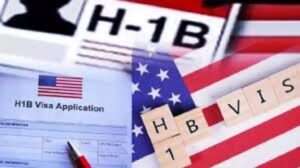The Volokh Conspiracy
Mostly law professors | Sometimes contrarian | Often libertarian | Always independent
Lawsuit Challenges Trump's $100,000 H-1B Visa Fee
The case was filed yesterday by a broad coalition of different groups, including a health care provider, education groups, religious organizations, and labor unions.

Yesterday, a broad coalition of groups filed the first lawsuit challenging President Trump's imposition of a $100,000 fee on applications for H-1B visas, which are used by tech firms, research institutions, and other organizations to hire immigrant workers and researchers with various specialized skills. If allowed to stand, the fee would effectively end most H-1B visas, by making them prohibitively expensive, thereby inflicting serious harm on the US economy.
The case is called Global Nurse Force v. Trump. The plaintiffs are a broad coalition including the Global Nurse Force (which supplies nurses to health care providers), education groups (e.g. - the American Association of University Professors), religious organizations, and labor unions. I am a little surprised that multiple labor unions joined this lawsuit, as one might think they would want to keep out potential competitors to their members. However, I would guess they have H-1B visa holders among those members. In addition, studies show that H-1B workers actually increase wages for many US-citizen workers by increasing productivity and innovation.
The complaint argues the H-1B visa is illegal for a number of different reasons. Here's a brief excerpt that summarizes some of them:
Defendants' abrupt imposition of the $100,000 Requirement is unlawful. The
President has no authority to unilaterally alter the comprehensive statutory scheme created by Congress. Most fundamentally, the President has no authority to unilaterally impose fees, taxes or other mechanisms to generate revenue for the United States, nor to dictate how those funds are spent. The Constitution assigns the "power of the purse" to Congress, as one of its most fundamental premises. Here, the President disregarded those limitations, asserted power he does not have, and displaced a complex, Congressionally specified system for evaluating petitions and granting H-1B visas. The Proclamation transforms the H-1B program into one where employers must either "pay to play" or seek a "national interest" exemption, which will be doled out at the discretion of the Secretary of Homeland Security, a system that opens the door to selective enforcement and corruption.
The plaintiffs also argue that the government's assertion of virtually unlimited power to impose visa fees goes against the major questions doctrine (which requires Congress to speak clearly when it delegates broad powers to the executive over issues of vast economic and political significance), and the constitutional nondelegation doctrine, which limits delegation of legislative power to the executive branch.
I made similar points in an earlier post about the H-1B visa fee policy, where I explained why it goes against the statutory scheme enacted by Congress, and why it would violate the nondelegation doctrine if Congress had delegated this power.
As the Global Nurse Force complaint notes, enforcing nondelegation is particularly crucial when it comes to the power to raise revenue, which is a specifically enumerated congressional power. The $100,000 fee goes far beyond anything that could plausibly be described as defraying administrative expenses, and is essentially a form of taxation. The Framers of the Constitution were careful to ensure that only the legislative branch could impose taxes, in order to avoid the abusive executive taxation pursued by 17th century British monarchs. This is one of several areas where Trump is attempting to usurp this legislative power. Others include his unilateral imposition of massive tariffs, and his unconstitutional export taxes (which even Congress lacks the power to impose under the Constitution).
I hope the plaintiffs prevail here. I expect there may also be other lawsuits challenging the H-1B fee.


Show Comments (71)